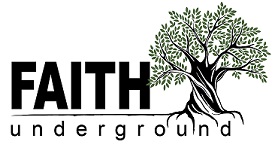My family, circa 1940. I had yet to be born.
Each of us experiences childhood in unique ways, for each soul is unique. If believers allow these formative experiences to teach us, we may use these lessons learned as we walk with Him.
I often reflect on my own childhood lessons. These lessons were primarily lessons of empathy as I learned of the suffering within my family. However these lessons were not made operative in my early adult life as I lived apart from God. Eventually, by His grace, I came to truly feel for others.
In this fallen world, sin and its resultant suffering infects every family. Our suffering was not as great as others might suffer, but the effect it had on my soul as a young boy was powerful.
My German-Jewish parents escaped Nazi Germany in mid-August, 1939 – two weeks before travel to the US ceased. My father’s extended family here in the States supplied them with Visas. My mother’s younger sister was not as fortunate, and she perished in a concentration camp. For the rest of her life Mama could scarcely bring herself to say her sister’s name. Many relatives and friends also perished.
I was the baby of the family and so not pictured above. As a boy I loved to listen to stories about their life in Germany. Some of these stories were happy memories of better days. But sadness was always near when the fate of their loved ones and close friends invariably came to mind.
A precocious kid, I quickly learned the German they spoke as they tried, unsuccessfully, to protect me from hearing of the Holocaust. They lived through personal, brutal experiences of persecution, leading up to displacement and poverty. The Nazis robbed them of money, home and virtually all of their possessions. They were thankful to get out with only their lives.
In the 1950s, the new medium of television brought the recent horrors of the Nazi genocide into our living room. Though my parents attempted to shield me from these images of human brutality, I picked up on it.
I was a sensitive boy, and the films of the death camps’ pitiful emaciated prisoners shocked me. With the end of the war, the concentration camp dead needed to be quickly buried. The sight of rotting broken corpses bulldozed into mass graves horrified my child-soul. I clung to my parents realizing that my family had barely escaped ending up in what appeared to be human trash heaps.
There seemed to be no end to suffering for my parents. Fifteen years to the day after they landed in New York City, their third child, a daughter, was murdered by her husband in a murder-suicide. She was only nineteen and I have only one vague memory of her, but I vividly recall my older brother telling me of this tragedy when I was eight years old. When I was nine, my father died of cancer at age sixty-two.
In Germany, my father had been a successful proprietor of a retail business, established by his father, which specialized in the finest silverware, produced by Krupp Berndorf. He was a gentle soul who once read me a poem he had written about God’s love. I can’t recall the words he composed in his simple English – he usually spoke German – but it made an impression on me.
My memory of our last time alone together would haunt me for years. His slow, agonizing death deeply distressed Mama and the others. I remember going to his bedroom and, having only a child’s comprehension of what was happening, I angrily told him simply to stop being sick. He died days later. For years after that, I was consumed by guilt.
Before my tenth birthday I was well aware of death, the depths of human depravity, and suffering. And my own sin.
Following his death, only my mother and I were left at the family home. She had little money and my father’s illness left her with significant hospital bills, which she paid off slowly. But despite this, she was always hopeful and cheerful. She gave me much love, and I loved her.
One may be tempted to think that these early life lessons in feeling for others – empathy – would lead me to treating others with care and compassion as I grew into adulthood. Far from it!
Due to the sin which infects all of humanity, and despite all that I’d been exposed to, I was able to ignore these early life lessons. My empathy had its limit – self-gratification. I did as I pleased and justified my behavior – “a law unto myself.” Consideration for the needs of others or what was best for them was superseded by my own needs. My empathy was blunted by my self interests.
But I was never able to remain comfortable for long. The lessons taught in my childhood would come to mind and result in guilt. Eventually broken down and convicted by the Spirit, I brought my sins before our Redeemer.
Taught by the Spirit, I learned that true empathy, within oneself, presumes the presence of the saving grace of God. This true empathy acknowledges our shared human predicament – our need to be reconciled with God. It is only by God’s grace that I came to experience the love of God which calls us to act toward – and pray for– the alleviation of human suffering.
Shaped and defined by faith, true empathy for others is to acknowledge the need of all to find forgiveness, the love of our Creator, and life eternal.
“A new command I give you: Love one another. As I have loved you, so you must love one another. By this everyone will know that you are my disciples, if you love one another.” (John 13: 34-35)


Thanks for sharing your contemplation on your past and the awareness and conclusion that the Holy Spirit brought to you.